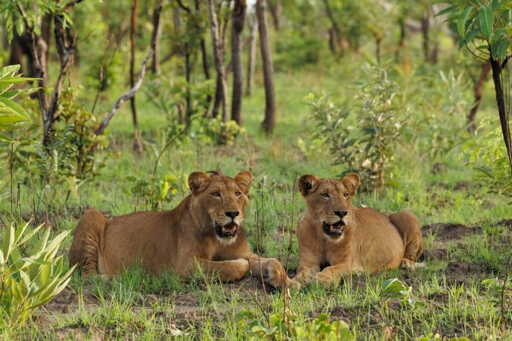Real-time monitoring has captured images of lionesses with cubs in Cameroon’s Bouba Ndjida National Park, but conservationists warn human pressure makes it unlikely all the cubs will reach adulthood. There are now an estimated 60-80 lions in the 220,000-hectare (544,000-acre) park in the country’s far north. “All collared lionesses have had cubs, signaling successful reproduction,” Matthieu Finiels, deputy director of the northern Cameroon landscape for the Wildlife Conservation Society (WCS), told Mongabay. In August 2024, Cameroonian biologists and rangers from WCS and the Ministry of Forestry and Wildlife (MINFOF) fitted seven lions in the park with GPS collars. A year earlier, in 2023, local conservation NGO BEDD had also collared three lions, bringing the total to 10. The collars ping the lions’ locations four times a day via satellite, enabling conservationists to monitor the big cats’ movements. “We can proactively prioritize those areas for patrols, ensuring protection from poachers,” Paul Bour, WCS’s landscape director said in a press release after the collaring. Bour helps the Cameroonian government plan and prepare antipoaching patrols. Despite the birth of cubs, there are still concerns about their survival. Paul Funston, director of the NGO African Lion Conservation, who assisted in the collaring, warned of the likelihood that not all the cubs would survive to adulthood. Now known as Miss Bouba for her striking beauty, she is the fifth lion collared in Bouba Ndjida National Park. Image by Daniel Djekda/WCS. “It is difficult for lionesses to raise cubs,” he told Mongabay. “When the young lions…This article was originally published on Mongabay
From Conservation news via this RSS feed


